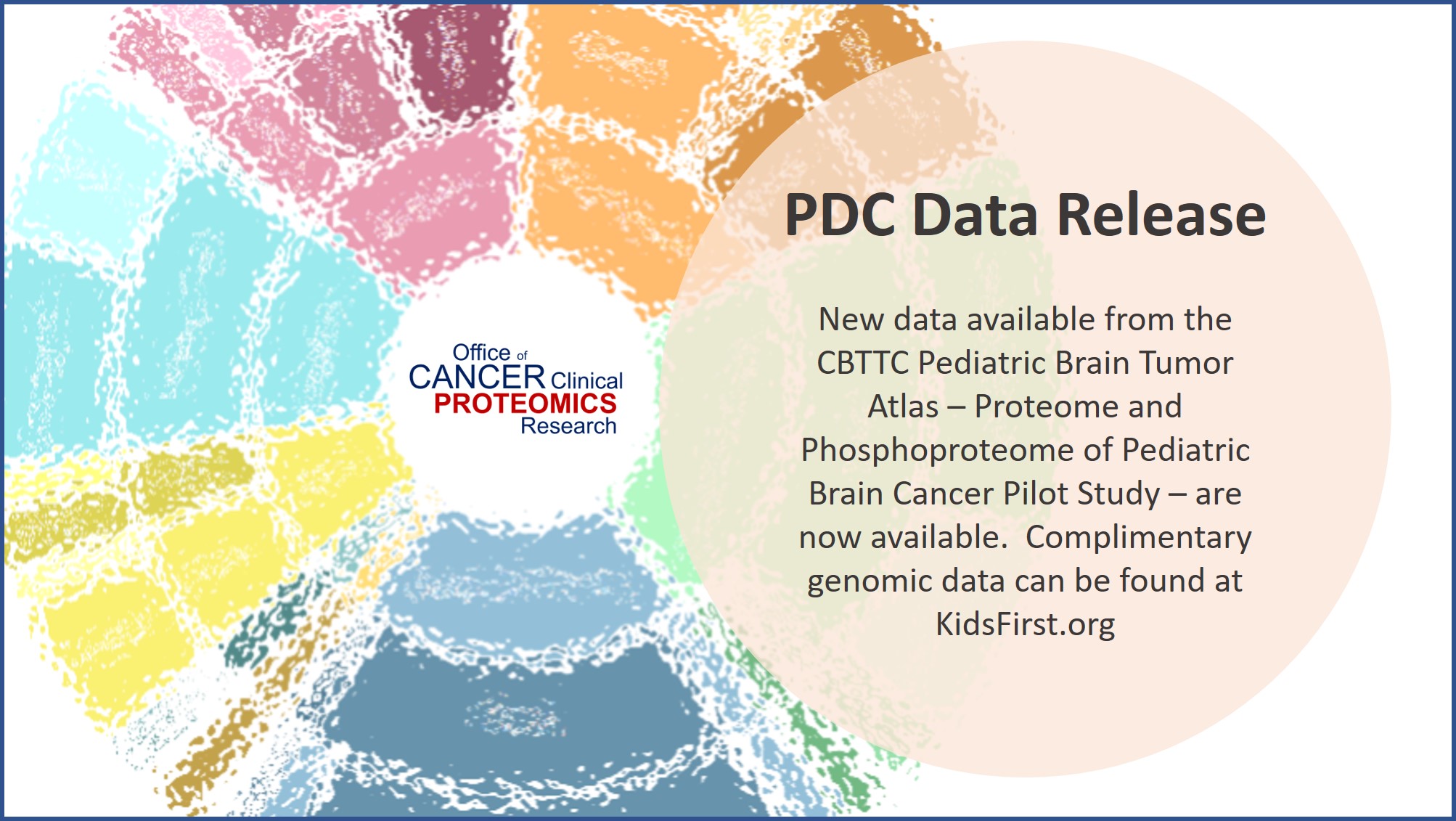The Proteomic Data Commons (PDC) has released data from the Children's Brain Tumor Tissue Consortium (CBTTC): Pediatric Brain Tumor Atlas dataset!

The CBTTC and the Pacific Pediatric Neuro-Oncology Consortia (PNOC) are collaborative research consortia focused on identifying therapies for children with brain tumors.
As a part of their collaboration, they have built the Pediatric Brain Tumor Atlas (PBTA) dataset which houses clinical data for a cohort of almost 1000 pediatric brains tumors, complete with associated whole genome sequencing and RNAseq data.
To extend the collaboration, CBTTC and CPTAC joined forces to further proteogenomically characterize a subset of these tumors in a pilot study examining seven brain tumor subtypes in children to aid in the identification of therapies for pediatric patients, which is now available on the PDC.
Data included in this release are proteomic and phosphoproteomic analyses of brain tumor samples included in the Kids First PBTA cohort and represent 199 patients analyzed, integrating the proteomic and genomic molecular characterization across seven pediatric and AYA (adolescent and young adult) histologies: Low Grade Glioma, High Grade Glioma, Ependymoma, Ganglioglioma, Craniopharyngioma, Atypical Teratoid Rhabdoid Tumor (ATRT), and Medulloblastoma.
Sample preparation, mass spectroscopy data generation, and data analysis were performed in accordance with CPTAC workflows and the CPTAC Common Data Pipeline.
All raw and processed genomic data, as well as pathology reports, radiology reports, MRIs, histology slide images are hosted by the Gabriella Miller Kids First Data Resource as part of the Gabriella Miller Kids First Pediatric Research Program (Kids First).

